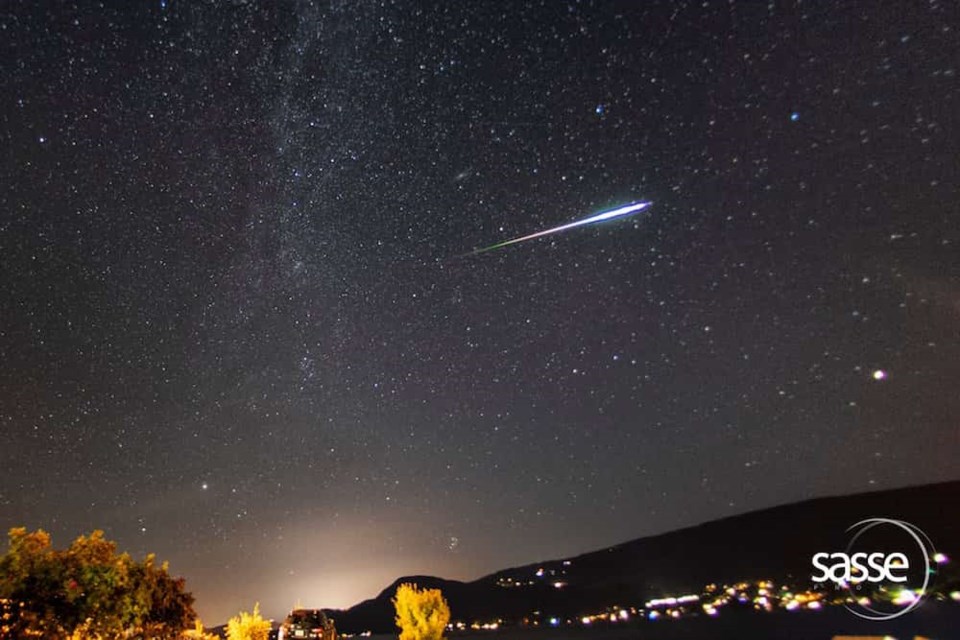Your Ultimate Guide To Observing And Understanding Meteor Showers

Have you ever looked up at the night sky and wished to see a shooting star? The excitement of spotting a meteor is an experience that many cherish. With the right tools and knowledge, you can enhance your chances of witnessing these celestial events. In this comprehensive guide to the shooting star tracker, we'll explore everything you need to know about meteor showers, how to track them, and when to see them.
The fascination with shooting stars—more accurately referred to as meteors—has captivated humanity for centuries. These fleeting lights in the sky are remnants of comets and asteroids burning up in the Earth's atmosphere. Understanding how to track these events can lead to memorable nights filled with wonder and awe. This article will provide you with essential tips and resources to become a proficient meteor observer.
Whether you are an amateur astronomer, a casual stargazer, or someone simply looking for a magical experience, this guide will equip you with the knowledge to make the most out of meteor shower events. From the science behind meteors to the best apps and websites for tracking shooting stars, we've got you covered.
Table of Contents
What Are Meteors?
Meteors, commonly known as shooting stars, are bright streaks of light that occur when a meteoroid—a small particle from space—enters the Earth's atmosphere. As it descends, the friction between the meteoroid and atmospheric particles causes it to heat up and emit light. The phenomenon usually lasts only a few seconds, creating a spectacular visual display.
Understanding the Meteor Process
The journey of a meteoroid can be summarized in the following stages:
- Entry: The meteoroid enters the Earth's atmosphere at high speed, typically between 11 and 72 kilometers per second.
- Heating: As it travels through the atmosphere, it heats up to thousands of degrees, causing it to glow.
- Disintegration: Most meteoroids disintegrate before reaching the ground, resulting in a meteor shower.
Types of Meteor Showers
Meteor showers can be categorized based on their origin and timing. The two primary types are:
Annual Meteor Showers
These showers occur at specific times each year and are associated with the Earth passing through the debris left by comets. Notable annual meteor showers include:
- Perseid Meteor Shower: Peaks around August 12-13, associated with Comet Swift-Tuttle.
- Geminid Meteor Shower: Peaks around December 13-14, associated with the asteroid 3200 Phaethon.
Irregular Meteor Showers
These showers occur less predictably and can be associated with the breakup of larger meteoroids or other cosmic events. Examples include:
- Leonids: Known for their unpredictability, sometimes producing spectacular bursts.
- Orionids: Occurs in late October and is associated with Halley's Comet.
When to See Meteor Showers
Timing is crucial for maximizing your chances of observing meteor showers. Here are some tips on when to look:
Peak Times
Most meteor showers have specific peak nights when the activity is highest. While annual showers occur around the same time each year, it's essential to check an astronomical calendar for the exact dates.
Best Conditions for Viewing
To see shooting stars, consider the following factors:
- Dark Skies: Find a location away from city lights to minimize light pollution.
- Clear Weather: Check the weather forecast for cloud cover and precipitation.
- Moon Phase: A new moon is ideal, as a bright moon can outshine meteors.
How to Track Shooting Stars
Tracking shooting stars requires a mix of technology and traditional observation. Here are some effective methods:
Using Apps and Websites
Several applications and websites can help you track meteor showers and provide real-time updates:
- Star Walk 2: An interactive app that helps identify constellations and meteor activity.
- SkySafari: A comprehensive astronomy app that offers detailed meteor shower information.
Social Media and Online Communities
Join social media groups or online forums where astronomy enthusiasts share tips and experiences. Websites like Reddit and Facebook have dedicated groups focused on astronomy and meteor tracking.
While you can observe meteors with the naked eye, certain tools can enhance the experience:
Binoculars and Telescopes
While not necessary for meteor watching, binoculars or telescopes can help you appreciate other celestial objects, such as planets and stars.
Photography Equipment
If you're interested in capturing meteors, consider using:
- DSLR Camera: With a wide-angle lens and manual settings.
- Tripod: To stabilize your camera during long exposures.
Tips for Watching Meteor Showers
Here are some practical tips to enhance your meteor shower experience:
Prepare in Advance
Before heading out, familiarize yourself with the meteor shower schedule and optimal viewing practices. Bring along:
- Comfortable Seating: A reclining chair or blanket can make long viewing sessions more enjoyable.
- Snacks and Drinks: Keep hydrated and energized during your observation.
Be Patient and Observant
Meteor showers can be sporadic, so patience is key. Allow your eyes to adjust to the darkness, and try to avoid looking at your phone or other bright lights.
Safety and Ethical Considerations
While enjoying meteor showers, it's crucial to consider safety and ethics:
Safety First
Be aware of your surroundings, especially in remote locations. Bring a flashlight, but use red light to preserve night vision.
Respect Nature
Leave no trace behind. Clean up after yourself and respect wildlife and natural habitats during your observations.
Conclusion
In this guide to shooting star trackers, we've explored the fascinating world of meteors, the best times to see them, and how to enhance your observation experience. By understanding the science behind these celestial events and using the right tools, you can create unforgettable memories under the stars.
Now it’s your turn! Prepare for the next meteor shower, gather your friends, and share your experiences. Don’t forget to leave a comment below about your favorite meteor shower or any tips you have for fellow stargazers!
Ready to explore more? Check out our other astronomy articles for insights and tips!
ncG1vNJzZmivmaC2b7XSrJirrZKWe6S7zGiqsKGWqbCivtNxZqygn6TBqrrGZqqtmaJiwbOtwqScq2aYqbqt